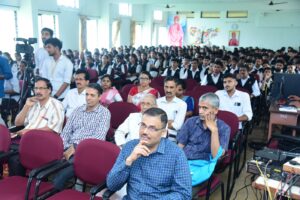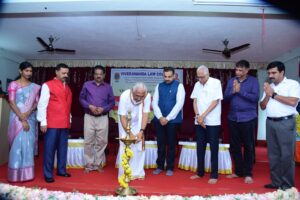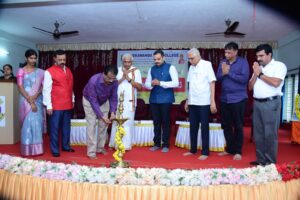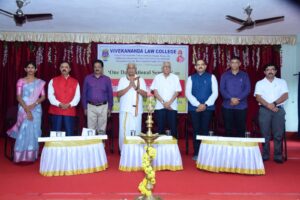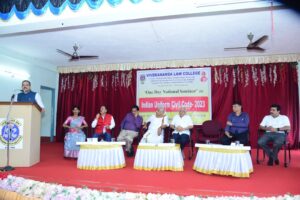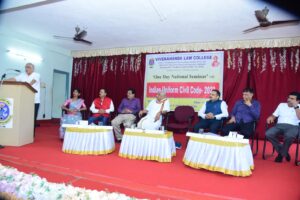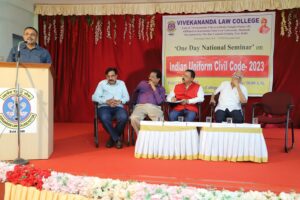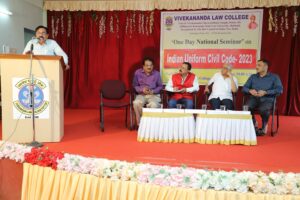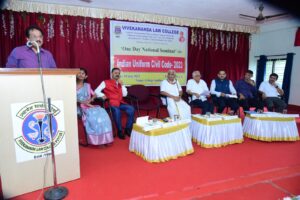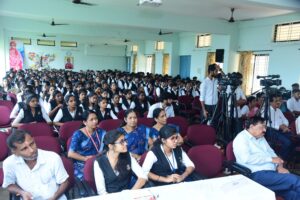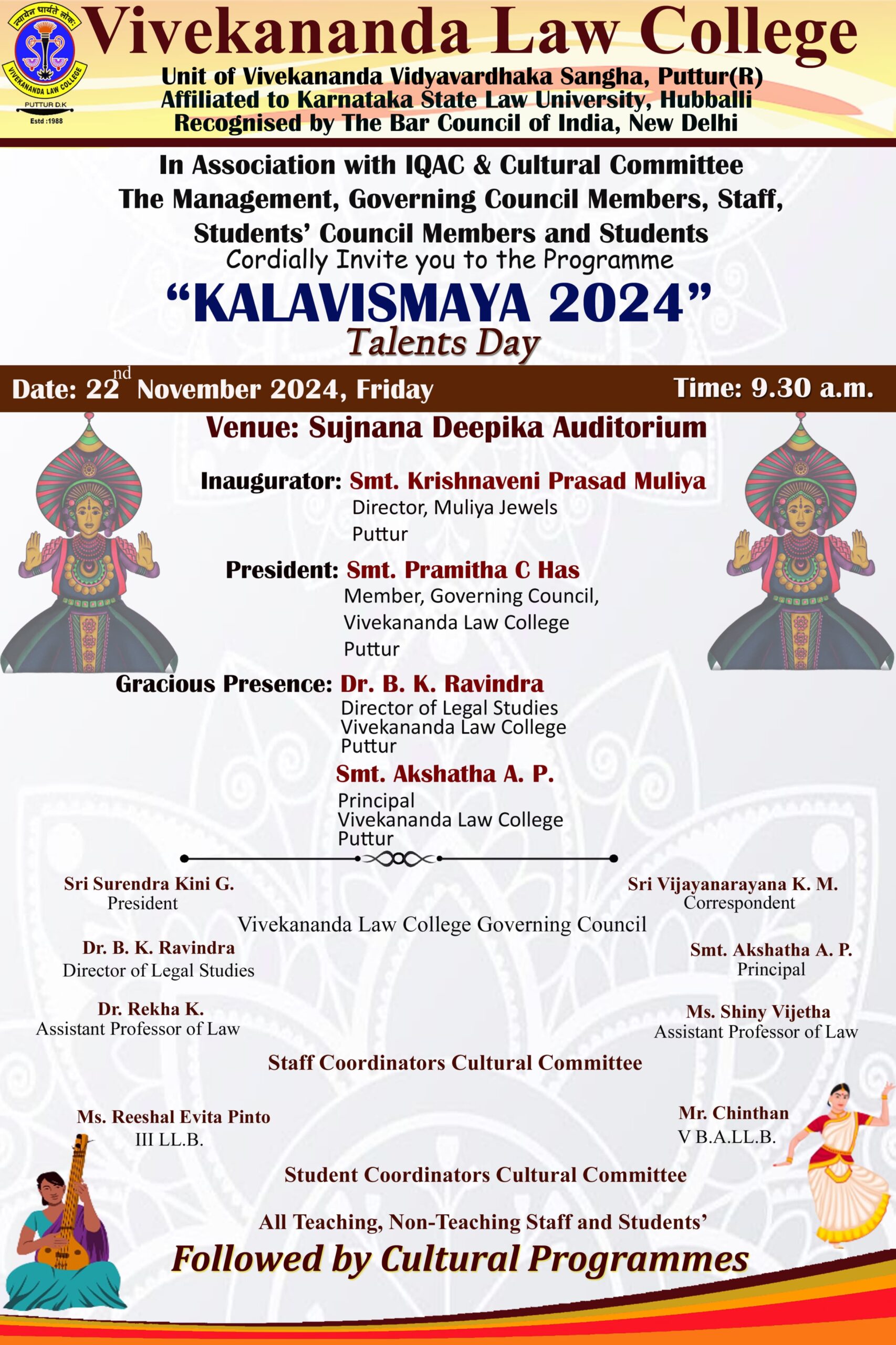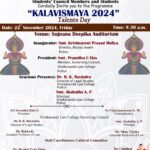Vivekananda Law College took the initiative of conducting a one day National Seminar on “Indian Uniform Civil code-2023” on 15/07/2023.
Dr. K.C Sunny, Professor and Dean of Central University, Kerala inaugurated the programme. Addressing the issue, he said that Uniform Civil Code had to be implemented within a period of ten years from the date of commencement of Constitution. Maintaining the customary laws already in practice and observing the changing trends in the areas of marriage, succession and private endowments is the need of the hour. In the present day scenario, there is a need for the uniformly applicable national civil code.
Sri M.Ram Mohan Rao, senior advocate from Puttur said that in common law there is an inequality in other laws as to Succession. The Hindu Succession Act Amendment 2005 gives privilege for a daughter to have equal rights like son where as the Succession Act of Family law II has a different law for Christians and Muslims. In Christians, a widow will get fixed 1/3 share and in Muslims 1/8 share is given for the wife/wives and daughters receive no such privilege. All these provisions will have to be coordinated.
Dr.Aruna Shysm M., Senior Advocates and Former Addl. Advocate General, Karnataka state said that Indian laws do follow a uniform code in most civil matters. Whether the Succession Act will contradict with the enforcement of fundamental and other rights has to be considered very carefully. Even while including the Directive Principles of State Policy lots of discussions were made in this regard.
Presiding over the programme Dr. Kalladka Prabhakar Bhat, President, Vivekananda Vidyavardhaka Sangha, said that formulation of one law for India which would be applicable to all religious communities should be implemented without a second thought.
Sri Surendra Kini, President and Sri Vijayanarayana K.M., Correspondent of Governing Council were present during the occasion.
Smt.Akshatha A.P., Principal welcomed the gathering. Sri Lakshmkanth A proposed avote of thanks. The programmae was followed by a technical session.
Topic 1: Uniform Civil Code
Resource Person: Sri M. Ram Mohan Rao, Senior Advocate, Puttur.
Article 44 of the Indian constitution adumbrates Uniform Civil Code. Diversities in the field of caste, culture threaten the internal harmony..French laws are respected even today because of uniformity. Article 240-245 of French Law clearly spells out uniformity in spite of diversities.E.g. Incompatibility is a direct ground for divorce in French Law but not so in Indian Law. In India only in Goa we have Uniform Civil Code.
Topic 2: Need for Uniform Civil Code in India
Resource Person: Dr. Sairam Bhat, Professor of Law,
National Law School of India University, Bangalore
He proposed the idea of choice based Uniform Civil Code and it would suit all sects of people all over India as India is a country of unity in diversity.
The younger generation is very much after change and as a part of their needs; our country very much requires a new Civil Code.
He also stressed on the implementation of Special Marriage Act with certain amendments. Empowerment of women by educating them is necessary and would work wonders in the legal field.
Topic 3: Judicial Decisions and Judgments of the Courts
Resource Person: Dr. K.R.Aithal, Professor of Law, Presidency University,
Former Dean
Faculty of Law, Karnataka University , Dharwad
After the invasion of Muslims, they derecognized Indian laws. During British rule, they decided what law should be applied to Christians and Muslims. There came the conflict of conversions. Civil Laws are largely based on religions. Afterwards, rule got merged with Indian civilization. All problems have arisen because of diversity and appeasement policy adopted by the political parties.Speaking on the Shah Bano Case that revolved around the issue of maintenance rights for a divorced Muslim woman named Shah Bano, he said that this laid the ground for thousands of women to make legitimate claims which they were not allowed before.
Topic 4: Religious Rights and Freedoms vis-a-vis Uniform Civil Code.
Resource Person: Dr. K.C. Sunny, Professor and Dean,
Central University, Kerala
The basic philosophy of religion contemplated by Swami Vivekananda as adumbrated in the Indian Constitution. Article 25 is a limited provision. All religions are a part of civilization. To have an orderly life, religion is necessary.
Uniform Civil Code had to be implemented within a period of ten years from the date of commencement of the Constitution. Maintaining the customary laws already in practice and observing the changing trends in the areas of marriage, succession and private endowments is the need of the hour. In the present day scenario, there is a need for the uniformly applicable National Civil Code. 